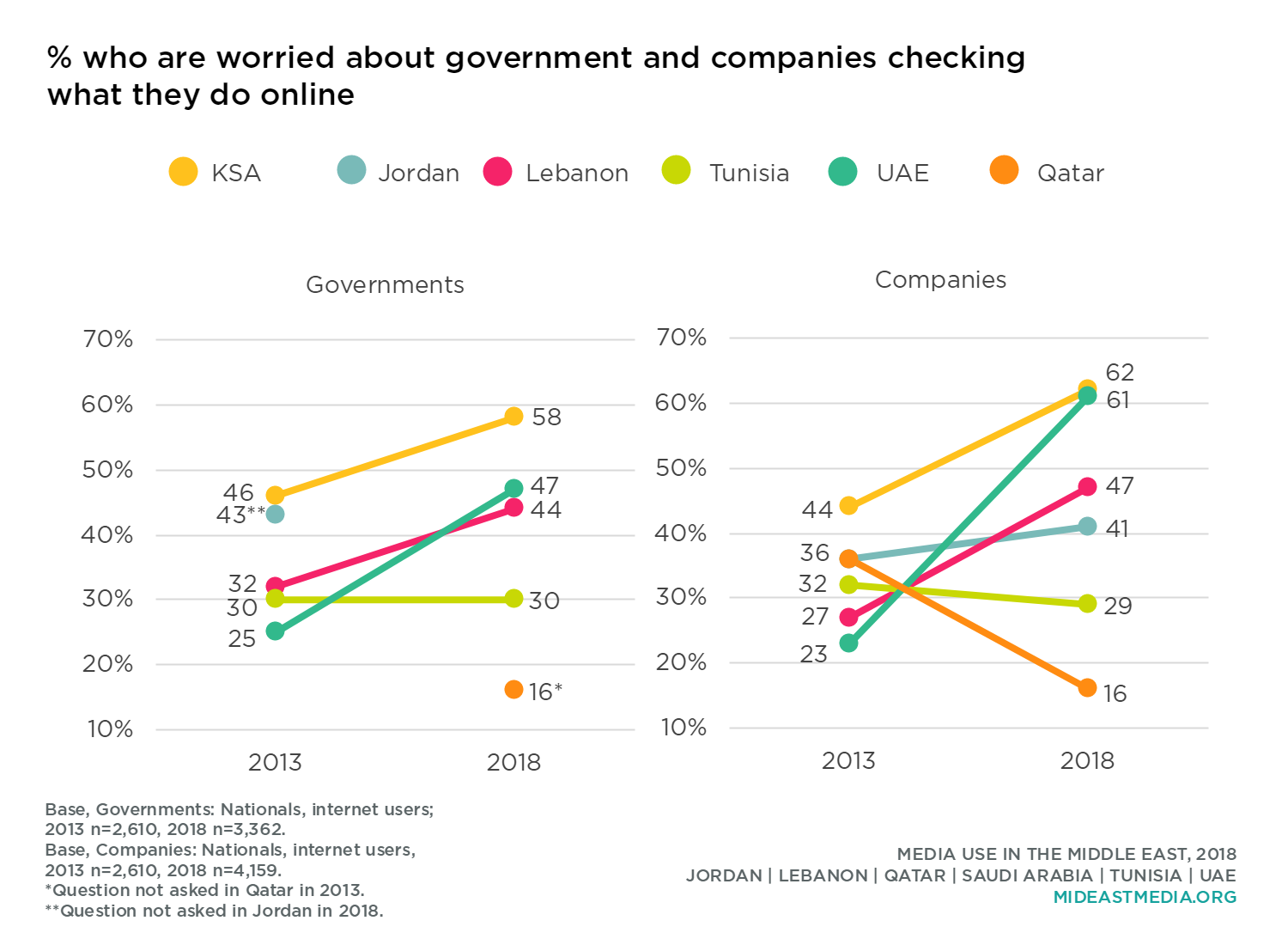NU-Q media survey reveals concerns about online privacy in some MENA countries
Online privacy is a concern in some MENA countries but less so in others, according to preliminary findings of Northwestern University in Qatar’s sixth annual survey of media use and public opinion in the Middle East.
The survey, the full results of which NU-Q will release next year, explores changes in media consumption patterns, attitudes and content preferences in six MENA countries: Saudi Arabia (KSA), United Arab Emirates (UAE), Qatar, Lebanon, Jordan, and Tunisia.
Among its initial insights, more internet users in Saudi Arabia and the UAE said they are worried about both corporate and government surveillance of their online activities, compared to those in the other surveyed nations.
“The MENA region is by no means monolithic, either in terms of geopolitics or culture,” said Everette E. Dennis, dean and CEO of NU-Q. “We therefore offer these initial survey findings as impartial data to enable a more informed discussion and better understanding of the rapidly changing media environment.”
The sixth annual media use survey was conducted face-to-face (phone in Qatar) among 6,575 respondents across six countries. The survey was conducted by The Harris Poll from July 14 to October 9, 2018.
Initial key findings from the 2018 study include:
- More Saudi and Emirati internet users worry about online surveillance, either by companies (62 percent, 61 percent) or government (58 percent, 47 percent), compared to others. For example, only 16 percent of Qatari internet users are concerned about either online corporate or government surveillance.
- The percentage of VPN (Virtual Private Network) users spiked in Qatar (from 6 percent in 2016 to 39 percent in 2018) and Saudi Arabia (7 percent in 2016 to 54 percent in 2018), among internet users. In Lebanon, Jordan, and Tunisia, that figure remains at 10 percent or less.
- Among social media and messaging apps, 31 percent of nationals said WhatsApp provides the most privacy, although one in four (24 percent) said no platform affords privacy.
- Smartphone ownership rates are among the highest in the world, with ownership percentages higher in almost all surveyed countries than in the United States. Nearly 100 percent of nationals in Qatar and UAE own a smartphone, as do more than nine in ten in Saudi Arabia and Lebanon.
- Although most Arab nationals watch television, nationals across the region reported a decline in daily viewing (68 percent in 2014 down to 51 percent in 2018).
- And more are watching TV online, with Saudi Arabia home to the highest percentage of online viewers (51 percent). Majorities in the Gulf countries use streaming services, with Shahid.net the leader followed by Netflix.
- Binge-watching is also on the rise, with the most dramatic increase in Qatar where 54 percent report doing so in 2018, compared to only 24 percent in 2016.
- Soccer/football is by far the most popular sport to watch on TV or online. Two thirds of nationals reported watching soccer in the last 12 months (64 percent), likely influenced by the 2018 FIFA World Cup (watched by 64 percent of nationals).
About the survey
NU-Q’s annual media use survey – Media Use in the Middle East – is the only one of its kind in the region and one of the few such efforts in the world. It offers extensive and valuable intelligence about the media that people adopt, use, and prefer as well as their attitudes and opinions about the role, impact, and importance of mediated communication in their lives and the lives of others across the Middle East region.
The project receives funding from Qatar National Research Fund and the Doha Film Institute.

